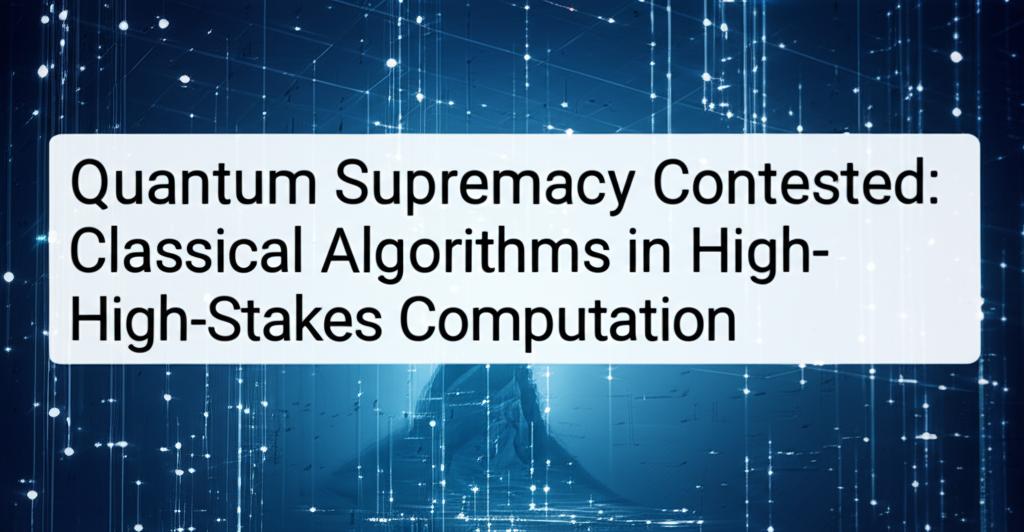The race for computational dominance has long been a captivating saga, with quantum computers typically heralded as the inevitable successors to classical machines for tackling the world's most complex problems. However, the narrative is evolving. Recent advancements and tenacious innovation in classical algorithms are mounting a surprisingly strong challenge, proving that the old guard isn't ready to concede in the high-stakes arena of computation.
For years, the term "quantum supremacy" has echoed through research labs and tech headlines, signifying the point at which a quantum computer can perform a calculation that no classical computer could feasibly complete. Google's 2019 claim with its Sycamore processor, which reportedly solved a problem in 200 seconds that would take a supercomputer 10,000 years, was a landmark moment. This, and subsequent claims by researchers, painted a picture of a rapidly approaching quantum era.
However, the story is not so straightforward. The very definition of quantum supremacy is a "moving target," constantly being redefined as classical algorithms become more sophisticated. Researchers are continually developing new classical approaches that can simulate or solve the same complex problems, sometimes even more efficiently or accurately than early quantum demonstrations. For instance, a classical algorithm was developed that dramatically reduced the initially claimed multi-million-year computation time for a Gaussian boson sampling problem to a matter of days. This back-and-forth highlights a crucial aspect of this computational contest: it's a race where both quantum hardware and classical algorithmic ingenuity are rapidly advancing.
One of the key insights emerging is that quantum computers won't be a universal replacement for classical ones. Instead, they are likely to excel at specific types of problems where their unique quantum properties, like superposition and entanglement, offer a distinct advantage. For many other tasks, classical computers will likely remain the more efficient and practical choice.
Recent breakthroughs have further blurred the lines. In early 2024, researchers announced a classical algorithm that could keep pace with, and in some benchmarks even surpass, state-of-the-art quantum computers in simulating Gaussian boson sampling experiments. This doesn't signify a failure of quantum computing, but rather a refinement in our understanding of its current capabilities and the ongoing power of classical computation.
Furthermore, the development of "quantum-inspired" algorithms is a fascinating byproduct of this contest. These are classical algorithms that leverage concepts from quantum mechanics to improve performance on conventional computers. This synergy demonstrates that the pursuit of quantum advantage is also, ironically, pushing the boundaries of what classical machines can achieve.
The road ahead for quantum computing still involves overcoming significant hurdles, including qubit stability, error correction, and scalability. While companies are making strides, with roadmaps extending towards fault-tolerant quantum computers, these are long-term endeavors.
In the interim, the dynamic interplay between quantum development and classical algorithm refinement continues. The focus is shifting from a simple "supremacy" declaration to identifying "quantum advantage" in practical, real-world applications. This means finding problems where quantum computers can offer a tangible, economically viable edge over the best classical methods. Fields like drug discovery, materials science, financial modeling, and cryptography are prime candidates where even a near-term quantum advantage could be transformative.
Ultimately, the future of high-stakes computation is likely to be a hybrid one. Quantum and classical systems will increasingly work in tandem, each leveraging its strengths to tackle different facets of complex problems. The contest for supremacy is therefore less of a zero-sum game and more of a catalyst for innovation across the entire computational landscape. As both quantum machines and classical algorithms continue to evolve, the true winners will be the scientific and industrial endeavors that can harness this ever-expanding computational power.

